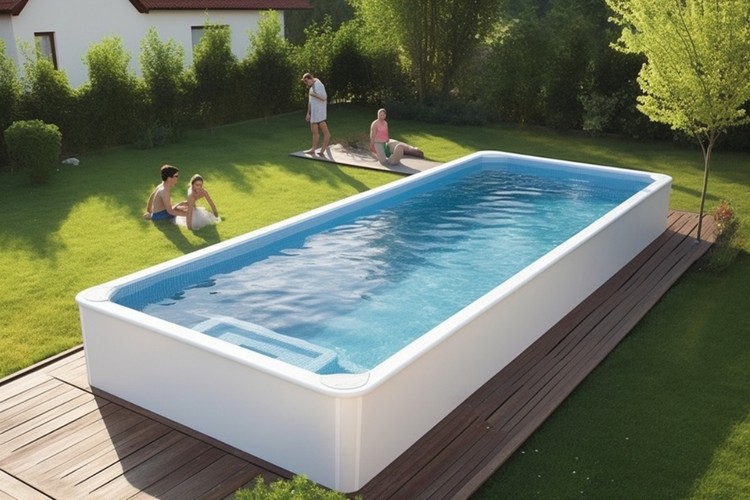Exploring Pool Installation with Finance Options in the UK: What Homeowners Should Know
Installing a swimming pool can significantly enhance your property's appeal and create a space for leisure and family time. However, the initial cost of installation can be substantial and may not be manageable as a lump-sum payment for many UK homeowners. To ease the financial burden, a growing number of pool companies and financial institutions in the UK now offer flexible payment plans. These allow you to spread the cost over time, with options tailored to different credit histories and property types. Knowing how these finance options work can help you plan your project with confidence and clarity.

What Types of Pool Financing Are Available in the UK?
UK homeowners have access to several financing options when planning pool installation. Personal loans from banks and building societies remain popular, offering fixed monthly payments over terms typically ranging from two to seven years. Secured loans against your property often provide lower interest rates but carry the risk of your home being used as collateral.
Many pool installation companies now offer in-house financing schemes, partnering with specialist lenders to provide tailored packages. These arrangements often include promotional periods with reduced or zero interest rates. Additionally, some homeowners choose to remortgage their property or use equity release products to fund their pool project, though these options require careful consideration of long-term financial implications.
Can You Get Pool Finance with No Credit Check or Deposit?
While traditional lenders typically require credit checks and deposits, some specialist finance providers offer alternative solutions for homeowners with challenging credit histories. These products often come with higher interest rates to offset the increased risk to lenders.
Some pool finance companies provide soft credit checks that don’t impact your credit score during the initial assessment phase. However, a full credit check usually occurs before final approval. Regarding deposits, several schemes advertise zero-deposit options, though these may require guarantors or come with higher monthly payments. It’s worth noting that even with poor credit, homeowners who own property may find secured loan options more accessible than unsecured alternatives.
How Do “Buy Now Pay Later” Pool Schemes Work in the UK?
Buy now pay later schemes for pool installation typically involve deferred payment periods, allowing homeowners to begin their project without immediate payment. These arrangements often feature zero interest for initial periods ranging from six months to two years, after which standard rates apply.
The process usually involves an initial assessment of your financial circumstances, followed by approval for a credit limit covering your pool installation costs. Some schemes require equal monthly payments after the promotional period, while others offer flexible payment options. However, it’s crucial to understand that missing payments or failing to clear the balance before promotional rates end can result in significantly higher charges being applied retrospectively.
What Documentation Do You Need for Pool Finance Applications?
Pool finance applications typically require comprehensive documentation to assess your financial stability. Most lenders request proof of income through recent payslips, bank statements, and employment contracts. Self-employed applicants usually need to provide accounts, tax returns, and business bank statements covering the previous two to three years.
Property ownership documentation, including mortgage statements and council tax bills, helps verify your address and property value. Some lenders may require proof of existing household expenditure and details of other credit commitments. Planning permission documents for your pool installation may also be necessary, particularly for secured loans where the pool adds value to the property used as collateral.
Understanding Interest Rates and Hidden Costs in Pool Finance
Pool finance interest rates vary significantly depending on the loan type, amount borrowed, and your credit profile. Unsecured personal loans typically range from 3% to 30% APR, while secured loans often offer rates between 2% and 15%. Many promotional schemes advertise 0% interest, but these rates usually apply only for limited periods.
Hidden costs can include arrangement fees, early repayment charges, and insurance products that may be added automatically. Some schemes include payment protection insurance or life cover, which can significantly increase monthly costs. In the UK, pool installations may also qualify for VAT exemptions in certain circumstances, such as when installed for medical reasons, which can provide substantial savings on the overall project cost.
Pool Finance Providers and Cost Comparison
| Provider Type | Typical APR Range | Loan Terms | Key Features |
|---|---|---|---|
| High Street Banks | 3.5% - 8.9% | 1-7 years | Competitive rates for good credit |
| Pool Company Finance | 0% - 15.9% | 2-10 years | Promotional periods, specialist knowledge |
| Specialist Lenders | 8.9% - 25.9% | 1-15 years | Poor credit options, flexible terms |
| Secured Loan Providers | 2.9% - 12.9% | 5-25 years | Lower rates, property as security |
Prices, rates, or cost estimates mentioned in this article are based on the latest available information but may change over time. Independent research is advised before making financial decisions.
Preparing Your Property and Finances for Pool Installation
Before committing to pool finance, ensure your property can accommodate the installation and that you understand ongoing maintenance costs. Pool running costs typically range from £1,000 to £3,000 annually, including heating, cleaning, and chemical treatments. Consider how the installation might affect your property insurance and whether additional coverage is necessary.
Financial preparation should include reviewing your credit report and addressing any issues that might affect approval rates. Calculate the total cost of borrowing, including interest and fees, to understand the true expense of your pool project. Many homeowners find it beneficial to save for a deposit even when zero-deposit schemes are available, as this can improve terms and reduce monthly payments.
Pool finance options in the UK have evolved to accommodate various financial situations and credit profiles. Whether through traditional bank loans, specialist pool finance schemes, or buy now pay later arrangements, homeowners can find solutions to spread installation costs over manageable timeframes. Success depends on thorough research, understanding all terms and conditions, and choosing options that align with your long-term financial goals while ensuring you can comfortably meet repayment obligations.




